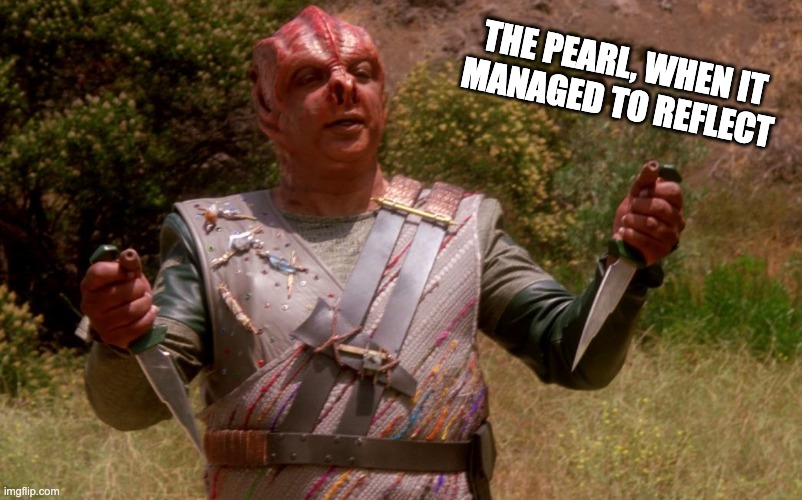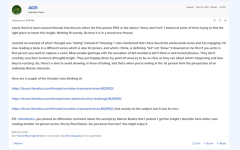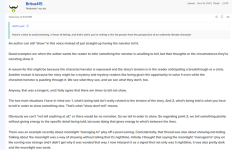AG31
Literotica Guru
- Joined
- Feb 19, 2021
- Posts
- 2,767
Lately there've been several threads that discuss either the first person POV or the advice "show, don't tell." I looked at some of them trying to find the right place to insert this insight. Nothing fit exactly. So here it is in a brand new thread.
I posted an example of what I thought was "telling" instead of "showing." I also mentioned that I have found the whole book series (not Lit) engaging. I'm now reading a book in a different series which is also 1st person, and which, I think, is definitely "tell" not "show." It dawned on me that if you write in first person you want to capture a voice. Most people (perhaps with the exception of AH members) don't think in well turned phrases. They don't carefully vary their sentence (thought) length. They just happily (from my point of view) try to be as clear as they can about what's happening and how they're reacting. So, there's a time to avoid showing, in favor of telling, and that's when you're writing in the 1st person from the perspective of an ordinarily literate character.
Here are a couple of the threads I was thinking of.
https://forum.literotica.com/threads/narrative-in-present-tense.1620152/
https://forum.literotica.com/threads/show-dont-tell-a-tiny-challenge.1620303/
https://forum.literotica.com/threads/narrative-in-present-tense.1620152/ (not exactly on the subject, but it was for me.)
P.S. @XerXesXu, you posted an affirmative comment about the excerpt by Warren Easley that I posted. I got the insight I describe here while I was reading another 1st person series, this by Paul Doiron. Do you know that one? You might enjoy it.
I posted an example of what I thought was "telling" instead of "showing." I also mentioned that I have found the whole book series (not Lit) engaging. I'm now reading a book in a different series which is also 1st person, and which, I think, is definitely "tell" not "show." It dawned on me that if you write in first person you want to capture a voice. Most people (perhaps with the exception of AH members) don't think in well turned phrases. They don't carefully vary their sentence (thought) length. They just happily (from my point of view) try to be as clear as they can about what's happening and how they're reacting. So, there's a time to avoid showing, in favor of telling, and that's when you're writing in the 1st person from the perspective of an ordinarily literate character.
Here are a couple of the threads I was thinking of.
https://forum.literotica.com/threads/narrative-in-present-tense.1620152/
https://forum.literotica.com/threads/show-dont-tell-a-tiny-challenge.1620303/
https://forum.literotica.com/threads/narrative-in-present-tense.1620152/ (not exactly on the subject, but it was for me.)
P.S. @XerXesXu, you posted an affirmative comment about the excerpt by Warren Easley that I posted. I got the insight I describe here while I was reading another 1st person series, this by Paul Doiron. Do you know that one? You might enjoy it.




